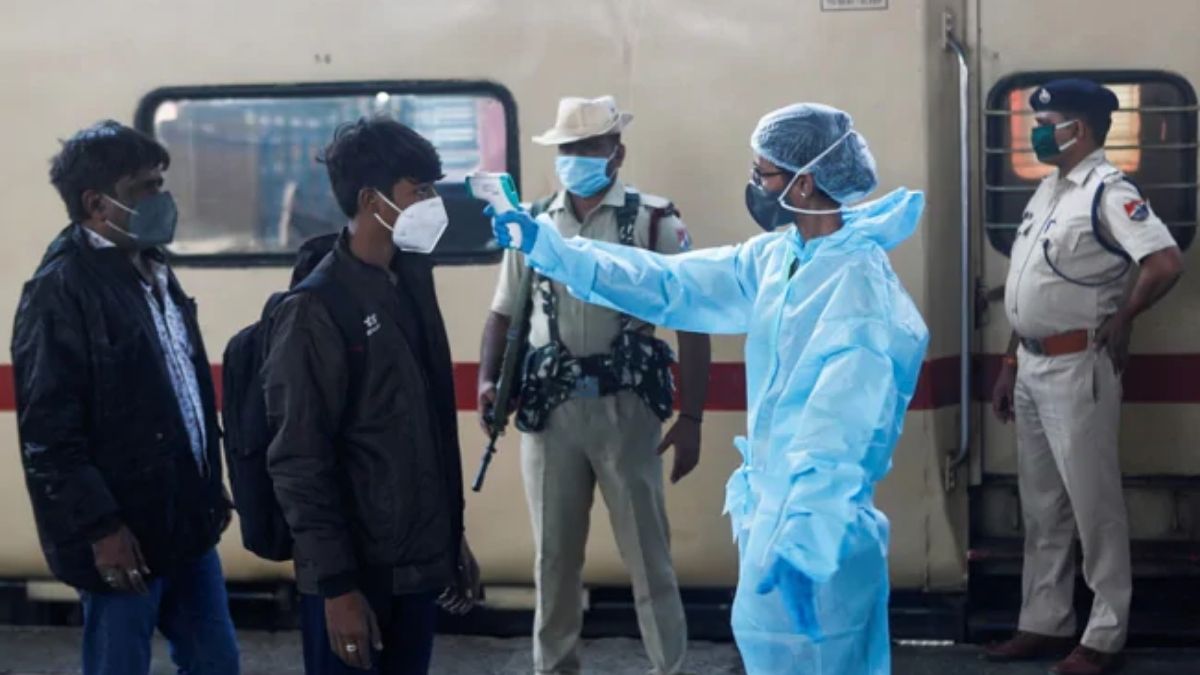 Image credits : NDTV.com
Image credits : NDTV.com
The Lancet medical journal, in its June 12 issue, has studied the coronavirus disease (Covid-19) crisis that’s unfolding in India and listed eight ‘urgent actions’ that has got to be taken to tackle the pandemic’s resurgence.
A renewed Covid-19 wave in India has been making its way into rural populations and have driven the country into health emergency, the journal suggested eight recommendations, that are meant to be undertaken urgently by the central and state governments ‘to amplify. The comment in ‘The Lancet’ journal was authored by 21 authors, including Biocon chief Kiran Mazumdar-Shaw.
Here are the eight recommendations suggested by the authors in ‘The Lancet’ journal to assist India tackle the resurgent Covid-19 crisis:
1. The organization of essential health services must be decentralized with a one-size-fits-all approach is untenable since the numbers of COVID-19 cases in health services are substantially from district to district. District-level working groups that have the autonomy to reply to rapidly changing local situations must be empowered to receive funds and resources to coordinate efforts across all sectors of the health system, from front-line workers to tertiary care.
2. There must be a transparent national pricing policy and caps on the costs of all essential health services — ambulances, oxygen, essential medicines, hospitalization , and therefore the like. hospitalization shouldn’t require any out-of-pocket expenditure and costs should be covered by existing insurance schemes for all people, as has been wiped out some states. All local governments are to be allocated with their grants as approved by the Fifteenth Finance Commission.
3. Clear, evidence-based information on the management of COVID-19 are to be more widely circulated and implemented. This includes guidelines for home care and treatment, medical care , and district hospitalization in local languages. It should also provide information to assist prevent increasingly concerning reports of other impacts of Covid-19, including secondary infections like mucormycotic. Specific guidance should be offered by the central government on the acceptable use of Indian systems of drugs , especially for prevention and health promotion interventions like yoga.
4. All available human resources across all sectors of the health system, including the private sector, must be assembled for the COVID-19 response which is adequately resourced and particularly with sufficient personal protective equipment, with guidance on the utilization of clinical interventions, insurance, and psychological state support.
5. Central systems to acquire and distribute Covid-19 vaccines freed from cost should be established during a departure from the present policy of decentralized procurement through state governments. State governments must choose the priority groups for vaccination on the idea of evidence to optimize the utilization of obtainable vaccine doses, which may be incrementally expanded as supplies improve.
6. Community engagement and public participation must lie at the guts of India’s Covid-19 response. Active collaboration must be encouraged between government and civil society organizations to make and disseminate accurate information, enabling home-based care, emphasizing prevention, helping navigate access to live-saving treatment, and promoting vaccination.
7. There must be transparency in government data collection and modelling to enable districts to proactively steel oneself against the likely caseloads within the coming weeks. Health system personnel require data on age and sex disaggregated COVID-19 cases, with hospitalizations and mortality rates including community-level coverage of vaccination and community-based tracking of the effectiveness of Covid-19 treatment protocols and long-term outcomes.
8. The suffering and risk to health caused by loss of livelihoods should be shorten by making provisions for cash transfers by the state to workers in India’s vast informal economy who have lost their jobs, as is being done by some state governments. Formal sector employers must be required to retain all workers, regardless of the status of contracts, through a government commitment to supply compensation to those companies when the economy revives. Lockdowns, if necessary, must be announced beforehand.
Meanwhile, India reports 60,741 cases in the last 24 hours. India is currently in its third phase of vaccination.
